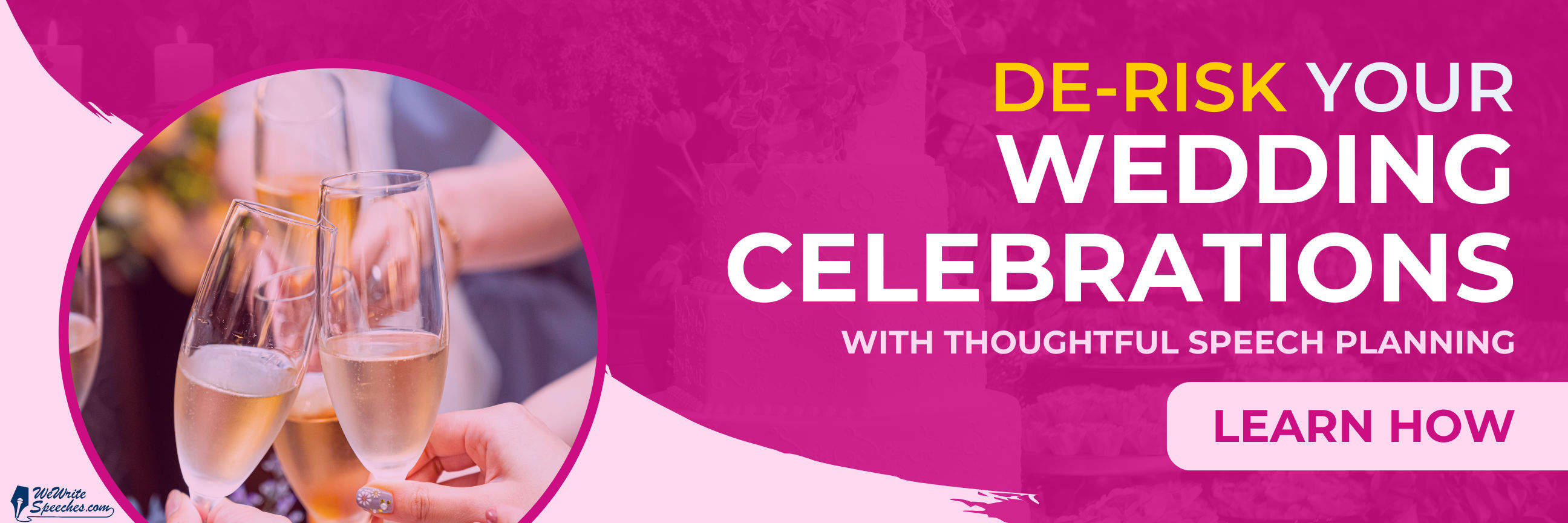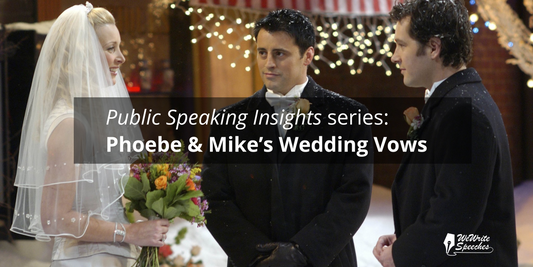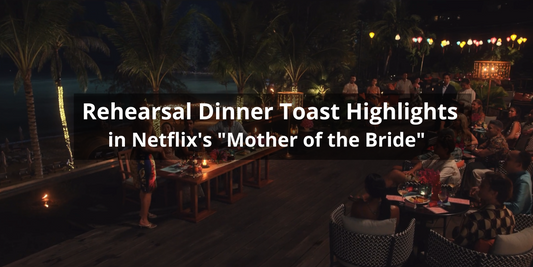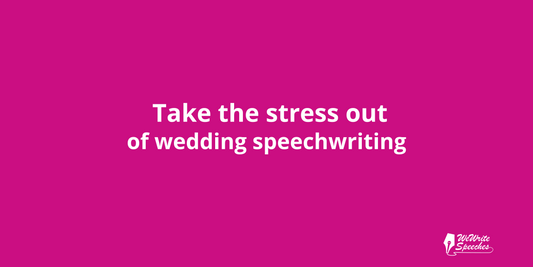Is it sensible to ask someone to speak at your wedding and then offer them directions on what to say? Surprisingly, there are compelling reasons to do just that, especially considering how wedding speeches have evolved over time. Let’s explore this further.
Traditionally, wedding speeches were predictable. Each speech, delivered by a man, seamlessly flowed into the next, creating a well-orchestrated narrative. The father of the bride was the first speaker and would draw his speech to a close by giving marital advice the groom and then toasting the couple. The groom would then express gratitude to his father-in-law, and would bring his own speech to a close by complimenting the wedding party and toasting the bridesmaids. Finally, the best man would thank the groom on behalf of the bridesmaids and the wedding party. This traditional structure offered clarity and expectation.
One of the other great things about tradition is that everyone knows what to expect, and so it is with traditional wedding speeches: speakers didn’t have to be told what the content of other speeches was likely to be. But what happens when you don’t follow tradition?
Modern speeches and the old certainties
Modern weddings often break from these conventions. Women now frequently speak at weddings, and many couples, marrying later in life, may not have parents to deliver traditional toasts. This shift from tradition, while liberating, also introduces uncertainty about speech content. For instance, if the best man is unaware of changes from the traditional format, he might mistakenly thank the groom for a toast made by the bride, or inadvertently overshadow the maid of honor’s speech.
Therefore, guiding speakers at contemporary weddings becomes valuable. They don’t need a script of what others will say, but a general overview is beneficial. This ensures they are aware of mentions or toasts directed at them, allowing for appropriate responses. Hence, it’s crucial for someone (be it the couple or a wedding planner) to determine the speakers and broadly outline the speech topics.
So, what exactly should be communicated to the speakers? The following analysis lists our views on the topic:
| Description | Should you guide the speakers? |
|---|---|
| List of speeches | It’s advisable to give speakers the full list of speeches to be given. Specifying who exactly will deliver each speech is not essential |
| Order of speeches | It's important to let every speaker know their place in the event's schedule to ensure a smooth flow. |
| Timing of speeches | Speakers should be informed about their speaking duration, especially the maximum time allowed, to keep the program on track. |
| Content of their speech | Speakers generally know or can easily learn what to include in typical wedding speeches (e.g., bride, matron of honor, mother of the groom). However, if you want specific content, like a toast to a certain group or acknowledgment of someone absent, it's crucial to communicate this. |
| Content of other speeches | It's beneficial for speakers to be aware of the overall structure and key themes present in all the speeches. Understanding who covers what topic, such as who will thank the wedding planners, helps prevent repetition and enables callbacks. It's not necessary for them to know the exact wording of others' speeches. |
| Overall tone | It's generally not recommended to dictate the tone of the speeches, be it humorous or sentimental. Allowing speakers to choose their own style results in more genuine speeches and delivery. |
| Appropriateness of language | While most speakers will naturally avoid inappropriate language, if a speaker is known for such language and it might offend guests, it’s wise to advise them accordingly. |
| Appropriateness of humor | Speakers should avoid embarrassing anyone, especially the couple. It is acceptable to inform them of any topics or incidents to steer clear of. |
| Trigger to start their speech | Each speaker needs to be made aware of the cue for starting their speech, whether it's an introduction by someone else or it follows a particular event. |
| Location of speech | It is helpful to inform speakers of where they'll be speaking, whether they do it at their table or need to walk to a designated area with a microphone. |
| Equipment | Informing speakers about the availability and type of equipment (e.g., microphone, stand, video projector) is essential. This preparation reduces their discomfort and helps them relax. |
In summary, guiding wedding speakers can be incredibly helpful. It gives them clarity on what their speech content should be and helps them better integrate their speeches with the overall flow. This clarity helps the speakers’ confidence. The guidance also helps the event planners by helping to keep the event flowing and running to time.
That’s why we’ve developed a unique wedding speech planning tool. It assists couples in organizing the order and content of speeches, ensuring a smooth and memorable wedding experience. Discover more about this tool here.




